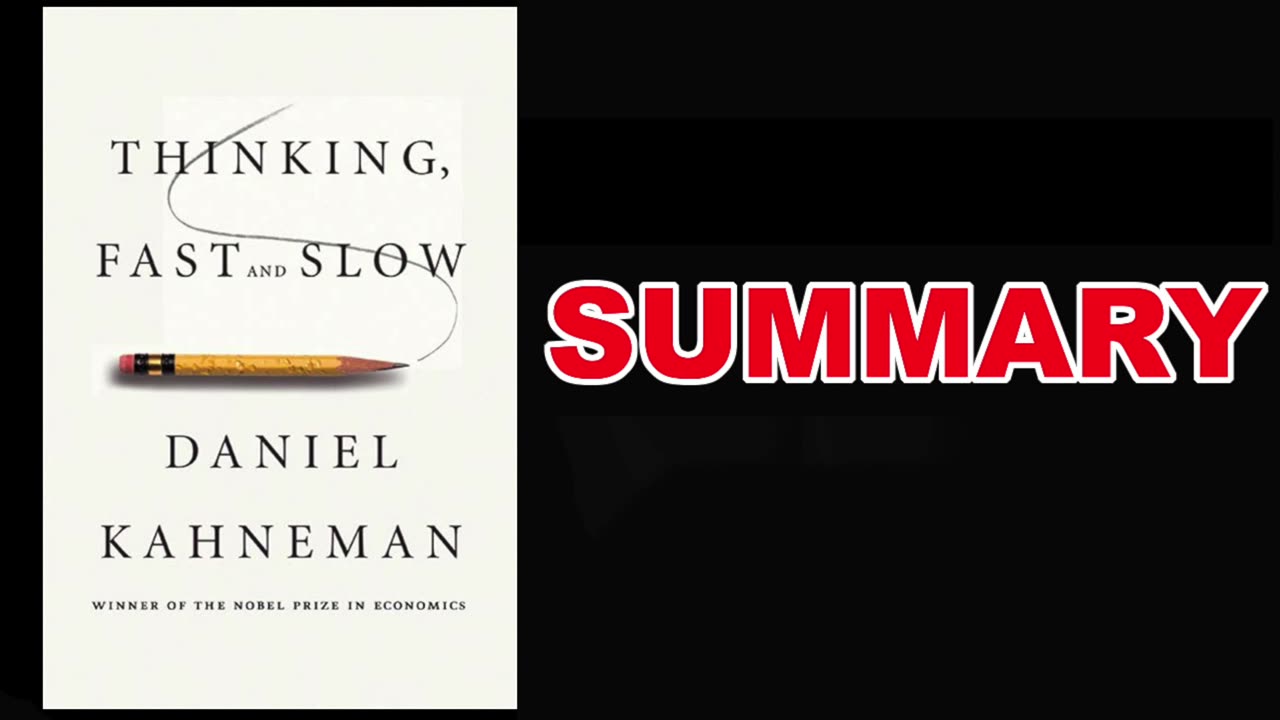Premium Only Content

Thinking, Fast and Slow by Daniel Kahneman | Summary
Buy Here: https://amzn.to/40kFKyF
"""Thinking, Fast and Slow"" by Daniel Kahneman is a comprehensive exploration of the way our minds work and how we make decisions. Kahneman, a Nobel Prize-winning psychologist, argues that the human brain operates using two distinct systems: the fast, intuitive, and automatic ""System 1,"" and the slower, more deliberate, and analytical ""System 2.""
The book explores how these two systems interact and how they can lead to cognitive biases and errors in judgment. Kahneman presents a wealth of research on topics such as prospect theory, the framing effect, and the availability heuristic, showing how these biases can affect our decision-making processes in a variety of settings.
One of the book's main contributions is its exploration of the notion of cognitive ease, which refers to the ease with which our minds process information. Kahneman argues that we tend to rely too heavily on this sense of ease when making decisions, often ignoring important information that doesn't fit our preconceived notions or biases.
The book also explores the concept of heuristics, or mental shortcuts, that we use to make decisions. Kahneman explains how these heuristics can sometimes lead to errors in judgment, such as the tendency to rely on the representativeness heuristic when assessing probabilities.
Throughout the book, Kahneman provides practical insights and advice for improving decision-making processes. He emphasizes the importance of recognizing our own cognitive biases and being aware of the limitations of our own thought processes. He also highlights the value of using data and evidence to make decisions, rather than relying on intuition or gut feelings.
Overall, ""Thinking, Fast and Slow"" is a thought-provoking and insightful book that provides a wealth of information about the way our minds work and how we make decisions. The book is a must-read for anyone interested in understanding the complexities of human cognition and improving their own decision-making abilities."
-
 11:51:52
11:51:52
Right Side Broadcasting Network
7 days agoLIVE REPLAY: Inauguration of the 47th President Donald Trump, and Presidential Parade - 1/20/25
1.28M571 -
 4:25:55
4:25:55
Kimberly Guilfoyle
12 hours agoLive Inauguration Day Coverage
179K52 -
 1:06:10
1:06:10
LFA TV
1 day agoThe Return of 45 | TRUMPET DAILY 1.20.25 7pm
89.6K -
 1:50:51
1:50:51
2 MIKES LIVE
8 hours ago2 MIKES LIVE #169 Inauguration Day Special!
58.6K11 -
 1:58:10
1:58:10
Quite Frankly
11 hours ago"The Inauguration Day Call-in Show" 1/20/25
54.5K12 -
 1:13:26
1:13:26
The Big Mig™
8 hours agoTrump’s Back!
55.3K13 -
 1:06:36
1:06:36
The Rubin Report
11 hours agoNo One Expected These Brutal Moments in Trump’s Inauguration Speech with Co-Host Sage Steele
143K146 -
 8:34:54
8:34:54
Dr Disrespect
15 hours ago🔴LIVE - DR DISRESPECT - DELTA FORCE - STARFALL NEW SEASON
138K22 -
 1:58:31
1:58:31
Revenge of the Cis
11 hours agoEpisode 1432: Take Two
80.2K27 -
 5:43:05
5:43:05
Bitcoin Magazine
7 days agoLIVE: Donald Trump Inauguration | America's First Bitcoin President
69.5K2